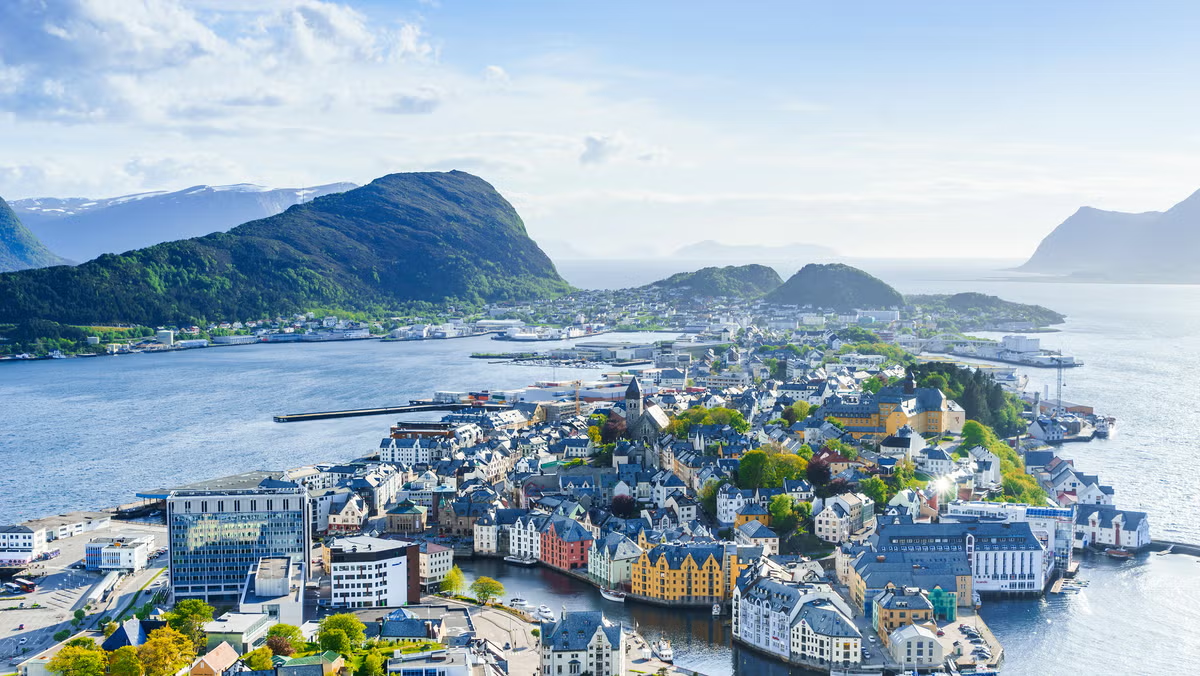Norway, a Scandinavian country known for its stunning landscapes and progressive society, is one of the most admired nations in the world. With its majestic fjords, vibrant cities, and deeply ingrained cultural heritage, Norway offers a one-of-a-kind combination of tradition and modernity. This article examines the many facets of Norway, including its culture, education, and significance to the world.
Norway’s landscape geography.
One of the most picturesque nations on Earth is Norway because of its dramatic natural features in its geography. It has a rugged coastline with deep fjords, towering mountains, and numerous islands that run along the western coast of the Scandinavian Peninsula. The magical northern lights in the winter and the midnight sun in the summer can be seen above the Arctic Circle in the country’s northern part. Norway’s geography not only defines its beauty but also plays a crucial role in shaping the lifestyles and livelihoods of its people.
Seasons and weather.
Norway experiences a wide range of climates due to its geographical diversity. The coastal regions, influenced by the Gulf Stream, have relatively mild winters and cool summers, while the inland and northern areas endure colder temperatures and heavy snowfall. The country has four distinct seasons, each with its distinct beauty. Winters are ideal for skiing and snow-based activities, whereas summers are perfect for hiking, fishing, and enjoying long daylight hours. Throughout the year, this seasonal variety contributes to a lively lifestyle.
Culture, History, and Tradition.
The strong Viking roots of Norway’s past, which date back thousands of years, continue to shape the country’s cultural identity. Norwegian seafarers traveled throughout Europe during the Viking Age, which lasted from about 800 to 1050 AD. Before gaining full independence in 1905, Norway entered into unions with Denmark and Sweden in later centuries. Today’s Norwegian culture is a blend of modern values and ancient customs. Its rich cultural heritage is reflected in folk music, national costumes known as “bad,” and historic stave churches.
Governance and the Structure of Politics.
Norway is a constitutional monarchy with a parliamentary system of governance. The King is the official head of state, but the elected Prime Minister and government have executive authority. The nation is well-known for its respect for human rights, democratic ideals, and high political transparency. It frequently ranks among the nations with the best governance and stability in the world. The political landscape of Norway is heavily influenced by the country’s dedication to social welfare and equality.
Resources and the Economy.
A combination of advanced industries and natural resources makes Norway’s economy one of the strongest and most stable in the world. It is a leading exporter of oil and natural gas, which significantly contributes to its wealth. However, the nation has also made significant investments in hydropower and other renewable energy sources. Minerals, forestry, and fishing are all important industries. Through the Government Pension Fund Global, Norway prudently manages its oil wealth, ensuring long-term economic stability and sustainability for future generations.
Innovation and Education.
Norway places a significant emphasis on research and education. For both domestic and foreign students, the nation provides free education at all levels, including universities. It emphasizes critical thinking, equality, and student well-being in its educational system. Universities in Norway are well-known for the results of their research, particularly in Arctic studies, technology, and environmental sciences. Through government support, the nation also encourages innovation, making it a hub for sustainable technologies and startups.
Quality of Life and Way of Life.
Norway consistently ranks among the top countries in global quality of life indices. Norwegians enjoy high standards of health care, education, and public services. Work-life balance is highly valued, with flexible work hours and generous parental leave policies. The natural environment encourages an active outdoor lifestyle, with citizens frequently engaging in hiking, skiing, and other recreational activities. Open-air living, or “friluftsliv,” is deeply ingrained in Norwegian culture.
Conclusion.
Norway stands as a shining example of how natural beauty, cultural heritage, and progressive values can harmoniously coexist. Norway continues to attract admiration from all over the world because of its extraordinary landscapes, rich history, world-class governance, and innovative policies. It is a model for other nations to emulate as a nation that promotes peace, equality, sustainability, and sustainability. Norway has a lasting appeal for people from all walks of life, whether they want to travel there, study there, or find inspiration there.
